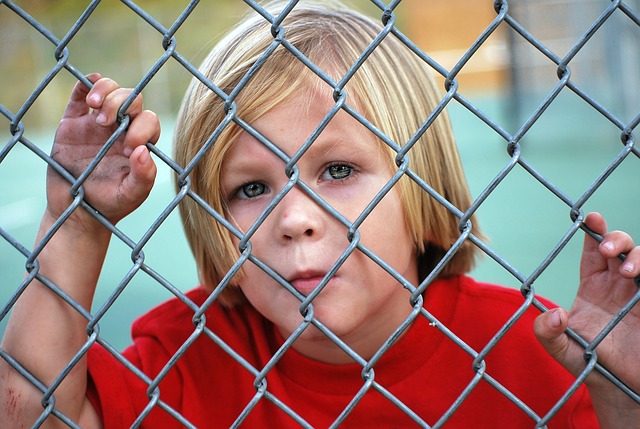The rather intense media focus on measles has predictably evolved into a protracted story about immunization. The story about immunization in turn has devolved into a somewhat tortured and bizarre tale of rights.
The case espoused from certain quarters is that the science on which vaccine recommendations are predicated should be subordinate to parental rights: parents should be allowed to decide.
This gets strange so fast it’s almost hard not to get whiplash. For starters the very quarters espousing this view are the exact same, so far as I can tell, that routinely champion not parental rights, but parental responsibility. These are the factions that contend parents should be personally responsible for defending their children from predatory marketing and the willful adulteration of foodstuff into addictive junk.
Maybe I’m missing something, but the only possible way I can think to make sense of these two planks is to put them into the same platform and wind up with: parental rights come with parental responsibilities. That actually makes sense. But the arguments about immunization are at odds with it, implying that parental rights allow for the renunciation of responsibility. I don’t get that.
That tale is compounded by the fact that we don’t generally offer parents the right to reject science they have no basis to judge in the first place.
So, for instance, there might be parents who “disagree” with heliocentrism. Those parents might very well prefer that schools teach their progeny a biblical solar system (and universe) with the sun and all else revolving around the earth. But our culture seems to have adopted the sensible position that in order to reject the tenets of astronomy, physics, trigonometry, and parallax- one needs to understand them first. The earth does, in fact, revolve around the sun, not vice versa, and the right of any parent to reject that is, ipso facto, the right to be wrong. The same is true of evolution, even if our culture hasn’t quite reconciled to that yet.
Epidemiology is a science, too. The recommendations for specific vaccines in specific combinations at specific times are the product of study. Those involved in that study and the interpretation of relevant data are not oblivious to the fact that sometimes on the very day someone gets vaccinated, something bad happens to them. They don’t rush to the conclusion that the vaccine was the reason, nor to the conclusion that it was not. That’s what formal epidemiologic study is for.
If millions of us are vaccinated against anything, it is inevitable that bad stuff will happen to some of us around the same time. True, this might be because of inherent vaccine toxicities- but the reason is far more fundamental than that. Unfortunately, on any given day in any given population of millions- many bad things happen. There are falls in the shower, and falls down the stairs; gunshots and car crashes. There are heart attacks, strokes, and seizures. And if there are enough millions involved, there may be shark attacks and lightning strikes into the bargain. Good things happen too, of course; but to my knowledge, no one has yet attributed winning Powerball to a vaccine.
Human nature propels us to seek a cause for every bad effect, however: we want to know why. So if those bad things, or the eventual development of a condition like autism, happen in the aftermath of a vaccine, and particularly if they are temporally proximal to one another- we will tend to blame the effect on the handy suspect.
The problem with that, of course, is that the handy suspect may be an innocent bystander, and a scapegoat. In any population of millions on any given day- many bad things happen. That’s true when they aren’t getting vaccinated against anything. And that’s where epidemiologic study demonstrates its utility.
To establish that vaccines are actually responsible for random bad outcomes requires comparable populations alike in all ways but one: one group gets vaccinated, the other does not. Then, a formal statistical analysis of the rates of diverse adversities must be conducted to look for any differences that rise above the threshold of statistical fluke.
I could go on, but I trust you get the idea. We do not simply get to blame a vaccine for toxicity because someone who happened to get vaccinated gets into a car crash, has a stroke, or develops autism. Nor do we get to claim that vaccines make people win the lottery- even if a freshly vaccinated individual happens to do just that.
The reality is that vaccines, like every option in life, do carry some risk. But the reality also is that for vaccines formally recommended by the Advisory Committee on Immunization Practices, the risk of immunization is orders of magnitude less than the risks of infection in the absence of immunization.
Perhaps you are a parent who feels you have the right to refute this. But if you do so just because you don’t “like” vaccines, or because you read someone’s opinion about someone’s opinion in cyberspace, all that really means is that you have the right to be wrong. If you really want to exercise the right to refute a product of science, you are first obligated to learn the science in question. As it happens, I have co-authored four editions of a textbook on epidemiology, so help yourself- and let’s talk after.
While I am a physician and an epidemiologist, I have a potentially more important credential in this context: I am a father. I’ve got 5 kids. I’ve got skin in the game.
All of my children have been fully immunized. The children of my fellow experts in medicine and epidemiology are, virtually without fail, fully immunized. We don’t love our children less than any other concerned parents; but there is a good chance we do understand the relevant science better. Not because we are better or smarter, but because understanding epidemiology is our job. All opinions on all topics are not created equal.
As for the right to renounce immunization despite the preponderance of evidence, and despite lack of training in or understanding of epidemiology- that leads back to issues of responsibility.
Ever since the measles stories broke, I have been looking for the right analogy. Second hand smoke came to mind: society can regulate tobacco because innocent bystanders may be harmed. That is true of immunization, too, as we are now hearing: the failure of one family to get immunized may put another family at risk. Similar arguments might pertain to laws precluding driving under the influence. And the principle is certainly robust. As an ethicist once told me, freedoms might give her the right to swing a stick- but her right to swing that stick ends where my nose begins. Amen.
But these analogies fall short in one important respect: regulation of tobacco or driving drunk is about preventing risk. The objectors to vaccines contend that regulation would be forcing them into a risk, not out of one. Statistically, they are wrong- but let’s honor the spirit of the concern just the same.
Are we ever obligated to take a risk for the “team” in a manner our society fully embraces? The answer is clearly yes.
I live in the U.S. and we the taxpayers here all support the U.S. Military. We do so as part of the price of being U.S. citizens; freedom, famously, isn’t free. We do so whether we are hawks or doves. We do so whether we like or dislike particular things the military is sent to do.
Inevitably, some of those things the U.S. military is sent to do around the world rub our enemies the wrong way. As a result, those enemies may seek reprisals. They may send terrorists to our shores, and the next thing you know, you are at risk of bodily harm because of a collective action you may not have liked in the first place.
Were we to debate this as we seem inclined to debate immunization, a concerned parent would have the “right” to opt out. We would have the option to say: I will not support the military with my tax dollars, and in return, I accept that the military- and by extension, perhaps, police and fire fighters- won’t protect me either.
Except that they will. If police fight crime in your town, they can’t help but protect you. If our military defends the security of our homeland, they can’t help but protect you. You can’t be in, and also be out.
The same is true of immunization. Herd immunity is like the military: it protects us all. Those parents who currently have the right to decline vaccines are unconcerned about their kids getting polio only because a prior generation of equally loving adults got their kids in line to be immunized. Those concerned parents need not worry about smallpox only because a global cohort of equally concerned and loving people got in line, and took care of business.
Even the risk of measles is very low in the unvaccinated, sparing those opting out a real reckoning with the historical magnitude of risk, because so many are vaccinated. The situation is far more nuanced than just those opting out putting others at risk. Those opting out are being protected by those opting in, even as the former put the latter’s families at preventable risk.
There are, unavoidably, risks associated with immunization- as there are risks associated with crossing a street, or taking a shower. Formal epidemiologic analysis reveals the risks of vaccination to be orders of magnitude smaller than the risks of infections vaccines prevent. We overlook this for two reasons. One, we pretend that the “right” of every parent extends to interpreting science they have never been trained to understand in the first place; and two, the risk of infections we tend not to see because of the stunning historical effectiveness of vaccines makes the risk of infection look deceptively negligible, and the risk of vaccination deceptively great. Stated bluntly, worry over vaccine toxicity is the privilege of societies spared the historical scourges vaccines reliably prevent. Were polio and smallpox still endemic among us, there would be no need whatsoever to make any of this argument.
We are all obligated to take some risks to enjoy the freedoms and privileges that come with being part of something bigger than ourselves. There is a word for willfully making our country vulnerable to foreign invasion, no matter one’s private motivations or personal ideology; that word is treason.
I think that takes matters too far when the foreign invader is a microbe rather than a military power, but it’s something to chew on just the same. We are not at liberty to introduce perils into the population because of personal belief. That very liberty and the rights it accords are conjoined to the responsibilities of citizenship. We are in this together.
Arguments for the primacy of parental rights are issuing from the same quarters that routinely argue for personal responsibility. Inadvertent though they may be, there are profoundly important reasons for the conjunction of the two.
We share in a great privilege, in turn derived from a great power in which we share- and to which attach, ineluctably, shared responsibilities. We are part of something bigger than ourselves.
What do YOU think about the vaccination debate? Comments Welcome!
To receive similar content, “Like” us on Facebook @ https://www.facebook.com/niagarabuzz.ca











